Table of Contents
Introduction
Artificial Intelligence (AI) is emerging in new forms every year, but the biggest tech wave that is coming in 2025 is that of AI Agents. It is no longer just a fancy term, but a revolutionary concept that is taking AI towards human-level intelligence.
You have heard and used the names of ChatGPT, Siri, Alexa, or Google Assistant. These are just basic-level AI agents. But in 2025, AI agents have become so advanced that they have started taking independent decisions in small businesses, students, healthcare, customer support, and even digital marketing.
Nowadays, artificial intelligence, i.e., AI, is seen everywhere, such as chatbots, smart speakers, self-driving cars, and even on platforms like Netflix or Amazon.
What are AI agents?
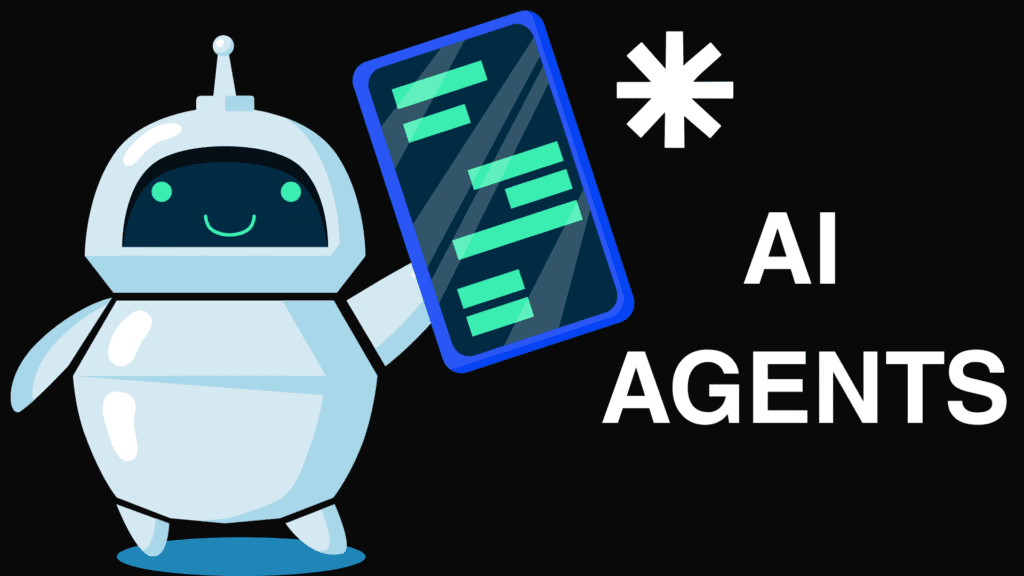
Autonomous software programs, which are referred to as AI agents, are proving to be a major breakthrough in artificial intelligence (AI). The systems can conduct functions on behalf of users, gather data, make decisions independently and learn by themselves as well.
In easy words, you can think of an AI agent as an intelligent helper that:
- Observes what is happening around it (input),
- Thinks about what to do (processing),
- Acts to solve a problem or complete a task (output).
AI agents are being considered as the next big wave due to their advanced capabilities and wide applications across various industries.
How AI Agents Work
Every AI agent operates in the following loop:
- Perception – Gathers data from the environment using sensors or inputs.
- Decision-Making – Uses rules, logic, or learning algorithms to decide what to do.
- Action – Performs an action in the environment through actuators or outputs.
For Example – A robot vacuum cleaner is an AI agent. It senses dirt (perception), maps your room (decision-making), and moves around to clean (action).
What Types Of AI Agents

| Agent Type | Key Feature | How They Work | Examples |
| Simple Reflex Agents | Act on current conditions | Ordinary reflex agents alone respond to the present state. They do not take into account the history of events or the future outcome. | Thermostat, basic AI in video games |
| Model-Based Reflex Agents | Use internal state | These agents have an internal state to store the history of events so that they can act, not only relying on the fact of the current percept. | Self-driving cars, chatbots |
| Goal-Based Agents | Plan actions to achieve goals | Goal-based agents consider the goal desired as a part of their action selection. They assess what can be done in relation to the attainment of the goal. | GPS navigation, task planners |
| Utility-Based Agents | Optimize outcomes | These agents go beyond achieving goals by evaluating multiple options and selecting the one that maximizes utility (overall satisfaction or benefit). | E-commerce systems, decision systems |
| Learning Agents | Adapt and improve over time | Learning agents can learn better and better performance by learning from the environment, i.e., in interactions between agents and environment. These include items such as a performance component, a learning component, a critic, and a problem generator. | Siri, machine learning algorithms |
| Collaborative Agents | Work with others | Such agent act in tandem with other agents or humans in order to achieve common goals or tasks. They employ communication protocols and decision routines in order to coordinate their moves. | Robotic swarms, multi-agent systems |
| Hybrid Agents | Combine multiple capabilities | Hybrid agents are hybrid agents that incorporate characteristics of various classes of agents, namely reflex, goal-driven, and learning agents, in order to carry out complex tasks well. | Humanoid robots, advanced AI systems |
Components of an AI Agent
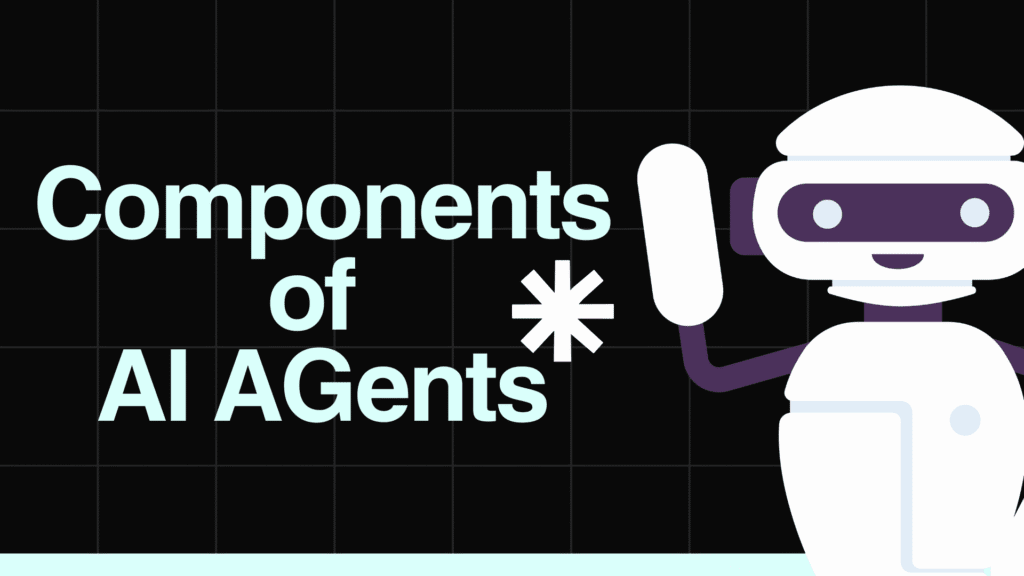
To function effectively, an AI agent needs:
- Sensors: To gather information (e.g., cameras, microphones, software data).
- Actuators: To take actions (e.g., motors, messages, robotic arms).
- Agent Function: The logic that maps inputs to actions.
- Learning & Feedback System: To adapt and grow over time.
An AI agent is like a mini decision-making machine. For it to function smartly, it is built with several key components, each with a specific role. Think of it like how the human body uses eyes (to see), brain (to think), and hands (to act).
For Example – Imagine a self-driving car as an AI agent
| Component | Role in a Self-Driving Car |
| Sensors | Cameras, radar, lidar, GPS to sense road conditions, obstacles, and location |
| Actuatotrs | Steering, brakes, throttle to control the car’s movements |
| Agent Program | Processes sensor data and decides actions like stop, turn, or accelerate |
| Knowledge Base | Stores maps, traffic rules, past driving experiences |
| Learning Component | Learns from past trips and adapts to driving habits and environments |
| Critic | Evaluates if the car is driving safely and efficiently |
| Performance Element | Actually controls the car in real time based on decisions made |
Here are Some Examples of Intelligent AI agents in artificial intelligence.
| AI Agents | How it works | Type | Example |
| Self-Driving Cars (Autonomous Vehicles) | Uses sensors (cameras, radar, GPS) to detect surroundings, and AI to make driving decisions like stopping, turning, and changing lanes. | Goal-based and learning agent | Tesla Autopilot, Waymo |
| Chatbots & Virtual Assistants | Understands user input (text or voice), processes it, and responds intelligently. | Model-based or learning agent | ChatGPT, Google Assistant, Amazon Alexa, Apple Siri |
| Recommendation Systems | Suggests products, movies, or music based on user behavior and preferences. | Learning agent | Netflix (movie recommendations), Amazon (product suggestions), Spotify (playlist curation) |
| Autonomous Drones | Flies using GPS and onboard sensors, avoiding obstacles and delivering packages or capturing footage. | Model-based and goal-based agent | DJI drones, Amazon Prime Air |
| Email Spam Filters | Scans incoming emails and filters spam using pre-trained models. | Simple reflex or model-based agent | Gmail Spam Filter, Outlook Junk Filter |
| Smart Home Devices | Respond to voice commands or sensor data to automate lighting, temperature, and appliances. | Simple reflex or utility-based agents | Google Nest Thermostat, Philips Hue lights |
| Robotic Vacuum Cleaners | Navigates rooms, avoids obstacles, and cleans floors using internal maps and sensors. | Model-based or learning agent | Roomba by iRobot, Roborock |
| Stock Trading Bots | Analyze market data and execute trades automatically based on strategies and patterns. | Utility-based or learning agent | MetaTrader bots, Trade Ideas AI |
| AI in Video Games | Game characters behave intelligently by adapting to the player’s behavior | Learning agent or goal-based | Enemies in strategy games like Age of Empires or sports games like FIFA |
| Healthcare Diagnostic Tools | Analyze symptoms, scan images (like X-rays), and suggest diagnoses or treatments. | Model-based and learning agent | IBM Watson Health, Google DeepMind’s AlphaFol |
How to Purchase these AI Agents
Purchasing AI agents involves identifying the specific needs of your business or personal projects, finding the right vendor, and integrating the AI solution effectively.
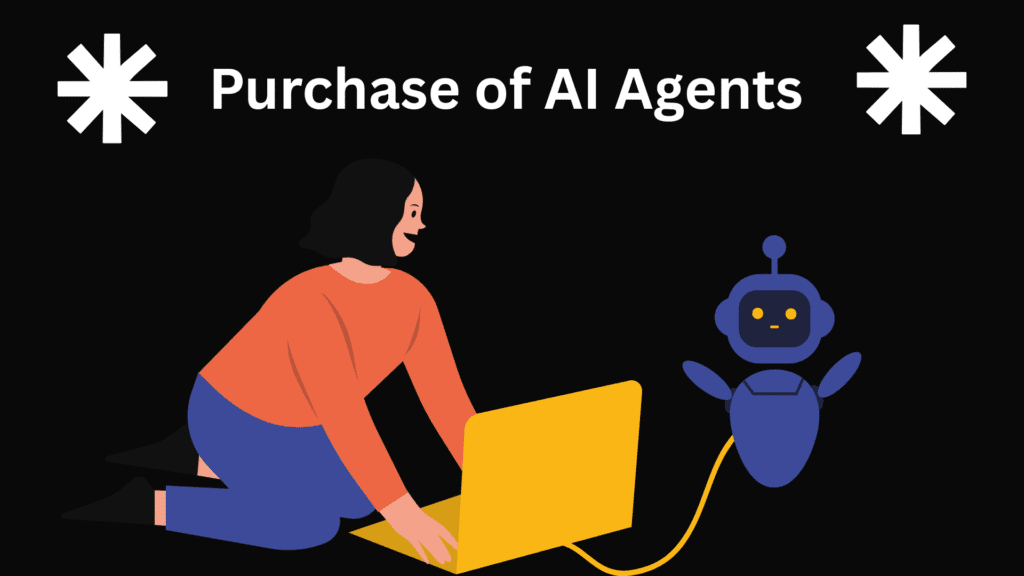
let us know how you can buy AI agents by following step by step-
Step 1: Define Your Needs- Clarify what you want the AI agent to do (e.g., customer support, automation, analysis). Decide the type (reflex, goal-based, learning, hybrid), your budget, and where it will operate (software, hardware, or cloud).
Step 2: Explore AI Options
- Off-the-Shelf Solutions (e.g., ChatGPT, Dialogflow, UiPath)
- Custom Development (e.g., Cognizant, Appen)
- Open-Source Frameworks (e.g., TensorFlow, PyTorch)
Step 3: Evaluate Vendors
- Relevant features and tech (ML, NLP)
- Scalability and integration ability
- Strong support and reputation
Step 3: Compare Pricing
- Subscription (e.g., OpenAI API)
- Pay-per-use (e.g., AWS AI, Azure AI)
- One-time purchase (for on-premise tools)
-
Custom development costs
Step 5: Test Before Purchase
- Performance: Is the AI agent accurate, efficient, and reliable?
- Ease of Use: Is the user interface intuitive for your team?
- Results: Does the AI agent meet your expectations in real-world scenarios?
Step 6: Purchase and Deploy
- Sign a clear agreement
- Integrate the AI with your systems
- Train your team to use it effectively
Step 7: Monitor and Optimize: AI agents require regular monitoring and updates to ensure optimal performance
- Evaluate performance metrics and ROI.
- Update the AI agent as new features or data become available.
- Regularly review ethical implications, particularly regarding data privacy and fairness.
Platforms where to Purchase AI Agents
There are so many platforms where you can purchase AI agents according to your requirements and budget.
| CATAGORY | PLATFORMS |
| Chatbots and Virtual Assistants | OpenAI (ChatGPT API),Google Dialogflow Microsoft Bot Framework,Zendesk AI |
| Automation and RPA | UiPath, Blue Prism, Automation Anywhere |
| Custom AI Development | DataRobot, Cognizant AI, Accenture Applied Intelligence |
Impact of AI Agents on Various Sectors
The impact of AI agents will be felt across a wide range of sectors.
Business: Businesspeople everywhere are going to be transformed by AI agents for business, working smarter and quicker, and delivering better customer care and innovation. It can work by entering data at a desk or answering simple inquiries for support for clients, freeing humans for more imaginative and high-value activities. It can interpret large amounts of data to make sense of trends and forecast customers’ behavior, streamlining business operations. Finance, the health sector, and manufacturing are already exploiting the power of AI to work better, cheaper, and ahead of the competition.
Personal Life: Our personal lives on numerous fronts are going to be transformed by AI agents. They can help us manage daily tasks, enhance productivity, and even enhance our health. Consider AI agents who manage your schedule, provide you with personalized recommendations for entertainment and food, and design plans for exercise and healthy living. AI agents can be brought into the educational system by tailoring the learning experience and helping students with research and assignments.
Society: It is certain that wider incorporation of the use of AI agents will bring its own social implications. Although certainly full of promise, the same issues must be on one’s mind, i.e., the impact on job displacement, ethics, and privacy. Some work will be eliminated, but at the same time, new types of work will be created for professionals working within fields such as the development of AI, data science, and ethics for AI. Equally critical is the requirement for that workforce to have an equitable transition, as well as work toward meeting the ethical suggestions presented by the design of AI and the implementation mechanisms.
Future Trends of AI Agents in the World of Artificial Intelligence
As we move further into the intelligent automation age, AI agents are changing rapidly not only in terms of capability but also in terms of complexity, responsibility, and intelligence. What is next? Let’s explore the most promising and disruptive future trends of AI agents that have the potential to define the next decade of technology and business.
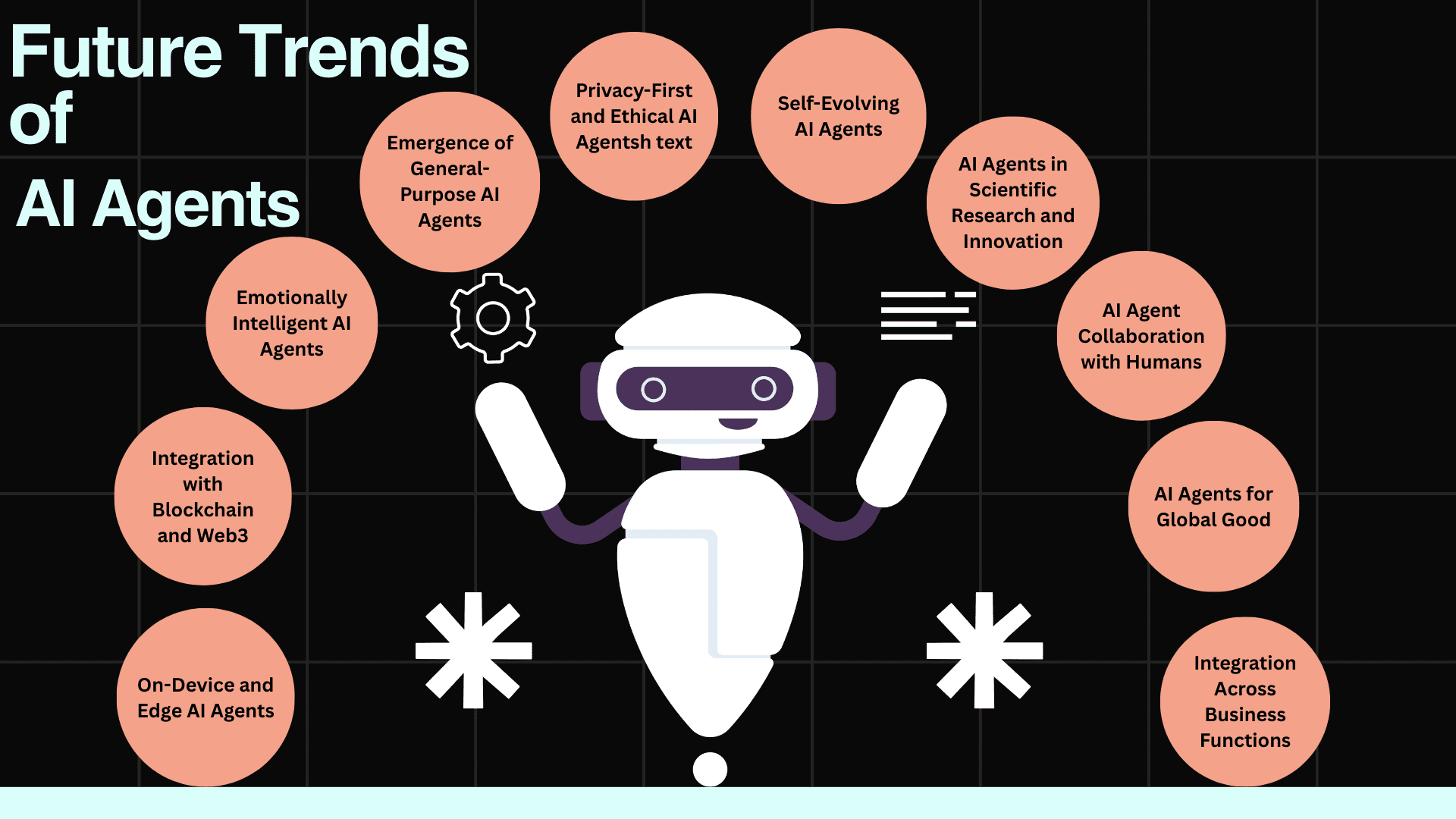
Emergence of General-Purpose AI Agents
Today’s AI agents are task-specific such as for meeting scheduling or product recommendations. However, in the near future, we are going to have general-purpose AI agents that can be applied in many roles and perform a variety of tasks in different industries.
For Example-
- Manage your calendar
- Act as a business analyst
- Provide customer service
- Provide legal advice
Emotionally Intelligent AI Agents
One of the most significant AI breakthroughs will be being able to comprehend and respond to emotions, rather than just language. Emotion AI is being used by these emotionally intelligent agents in order to recognize tone, facial expressions, as well as body language.
For Example-
- Mental health support
- Empathy in customer care
- Personalised education and therapy
Integration with Blockchain and Web3
Enabling AI agents with Blockchain and Web3 is creating a new world of decentralized intelligence. AI agents are able to interact with smart contracts, process data in real time, and make decisions on their own free from centralized control. This provides transparency, security, and user control of the data—fundamental principles of Web3.
For Example-
- In DeFi (Decentralized Finance), AI agents are able to determine lending rates or flag fraudulent behavior automatically. In DAOs (Decentralized Autonomous Organizations), they are able to manage proposals and votes according to aggregate behavior, ensuring governance is smarter and efficient.
AI Agent Collaboration with Humans
Instead of replacing humans, next-generation AI agents will collaborate with us, serving as intelligent co-workers. This will result in improved creativity, productivity, and decision-making in the workplace.
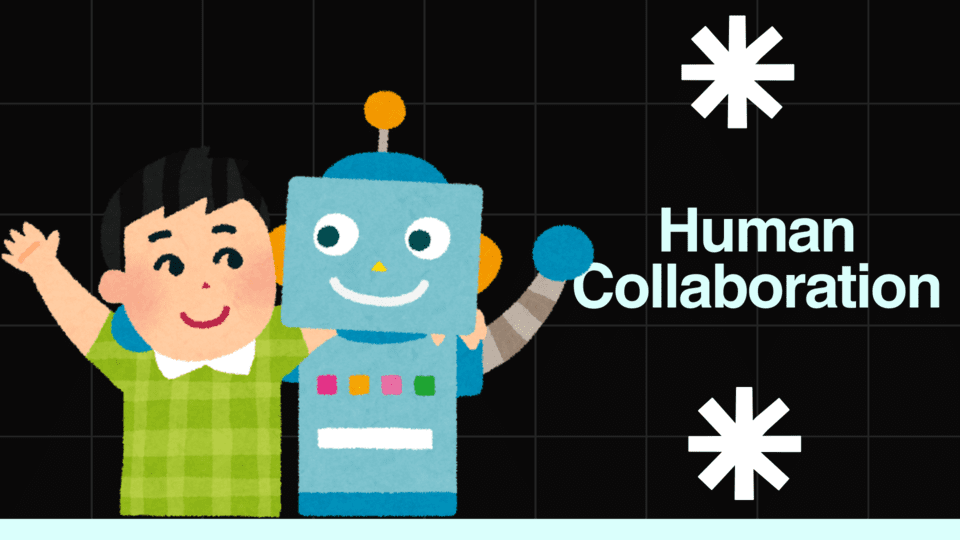
For Example-
- Physicians employing AI agents for diagnostic suggestions
- Designers receiving real-time creative inspiration from AI
- Project managers obtaining AI-based reports and risk projections
On-Device and Edge AI Agents
Today, all the AI agents rely on cloud computing. But in the future, we will have many AI agents executing on local hardware (phones, wearables, smart gadgets) through the use of Edge AI.
For Example-
- Quicker response times
- No internet required for essential functions
- Enhanced privacy and better data security
Privacy-First and Ethical AI Agents
As concerns around data grow, AI agents will develop with integrated privacy controls, transparency tools, and ethical guardrails. Anticipate agents that explain themselves clearly, ask permission, and adhere tightly to data ethics.
For Example-
- Transparent AI decision-making (“Explainable AI”)
- User-driven data exchange
- Adherence to worldwide data legislations (GDPR, CCPA, etc.)
Self-Evolving AI Agents
Future AI agents will not merely learn but will improve themselves by modifying their own algorithms or teaming up with others to tackle fresh challenges. This gets us closer to autonomous, dynamic AI environments.
For Example-
- A customer service agent who rewrites their own scripts on the basis of analyzing several hundred new customer queries and patterns of feedback.
Integration Across Business Functions
Instead of being in separate systems, AI agents will be cross-functional, unifying marketing, sales, operations, HR, and customer support in one intelligent platform.
For Example-
- The AI agent analyzes customer behavior to create personalized emails, tracks live sales data, monitors stock levels, and automatically orders products, handles basic queries through chat.
AI Agents in Scientific Research and Innovation
In the coming decades, AI agents will be helping scientists, researchers, and engineers in revolutionary ways.
For Example-
- Conduct simulations
- Create hypotheses
- Review extensive research articles
- Uncover new drugs or climate models ahead of human teams
AI Agents for Global Good
Be prepared for increased AI agents for tackling world problems, ranging from climate action to alleviating poverty.
For Example-
- Agents monitoring carbon emissions
- Predicting and responding to natural disasters
- Supporting remote education and healthcare provision in marginalized areas
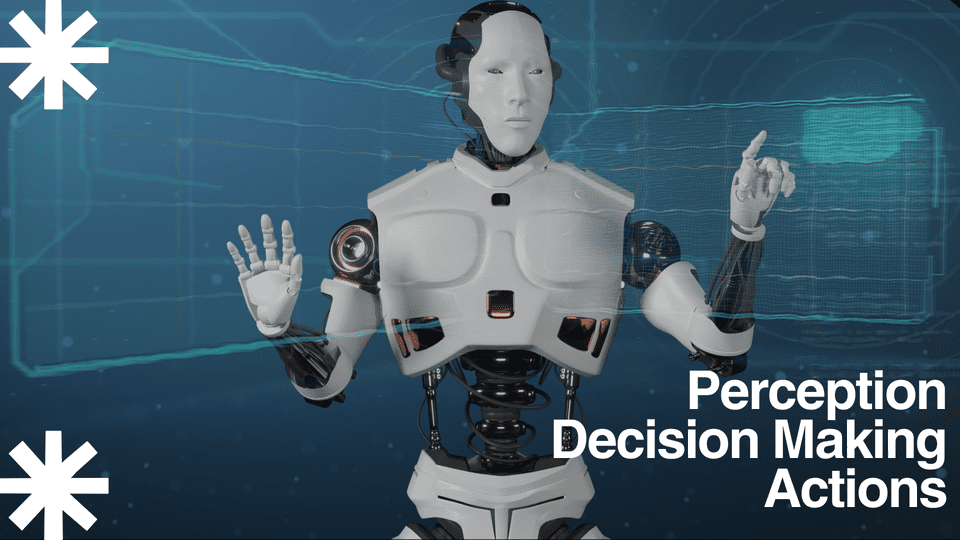
Conclusion
In 2025, AI agents are not merely another technology trend, they are revolutionizing the way we interact with the digital world, how we work, and how we live. Through their capacity for thinking, learning, and acting on their own, they are emerging as a fundamental tool in every field.
The move towards AI agent-based systems is a fundamental shift in artificial intelligence. The earlier individuals and businesses adapt and comprehend this shift, the better well-equipped they will be in the future.
Begin small, remain inquisitive, and get ready to team up with the intelligent agents of the future.
Frequently Asked Questions (FAQs)
Q: What are AI agents in simple terms?
A: AI agents are intelligent computer programs that can think, learn, and decide in order to get things done like a useful assistant. For instance, a web-based chatbot that responds to your queries or a voice assistant that sends you reminders of your appointments is an AI agent. They function by sensing their environment, knowing what is required, and acting upon the same automatically.
Q: Can small businesses use AI agents?
A: Yes, small businesses can definitely make use of AI agents. In fact, AI agents are becoming increasingly affordable and accessible, assisting small businesses in automating such functions as customer support (chatbots), data analysis, email marketing, lead generation, and inventory management. They save time, cut down on expenses, and increase productivity without requiring a large team or in-depth technical knowledge..
Q: What is the difference between AI and AI agents?
A: Artificial Intelligence (AI) is a branch of computer science that is concerned with developing systems that can mimic the intelligence of humans, such as learning, reasoning, and problem-solving. An AI agent, by contrast, is a particular implementation of AI that senses its world and acts in order to realize a goal. In short, AI is the intelligence concept in general, whereas an AI agent is the active agent that uses that intelligence for interaction with the world and decision-making.
Q: Are AI agents replacing human jobs?
A: AI agents are not outright replacing all human jobs, but they are automating many repetitive and data-driven tasks. While this reduces the need for some roles, it also creates new opportunities in AI development, oversight, and collaboration. The future lies in humans and AI agents working together, not competing.
Q: What industries benefit most from AI agents?
A: A number of industries are experiencing major advantages from AI agents. They include finance (to detect fraud and for trading), healthcare (for monitoring patients and diagnostics), retail (to offer personalized shopping and stock management), manufacturing (for predictive repair and manufacturing process automation), and customer support (from virtual assistants and chatbots). AI agents promote efficiency, save on expenses, and facilitate quicker decision-making in all of these industries.

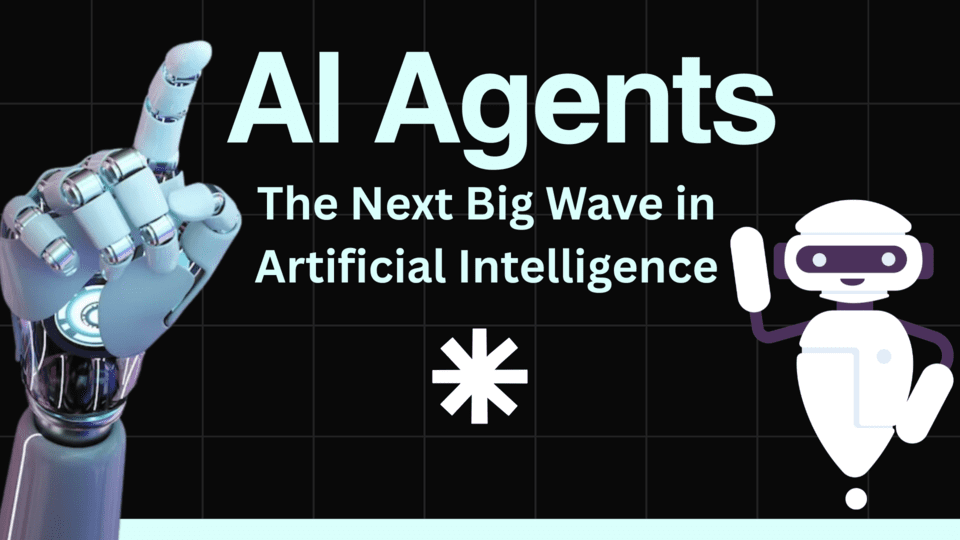
1 thought on “In 2025, AI agents the next big wave in artificial intelligence”
Comments are closed.